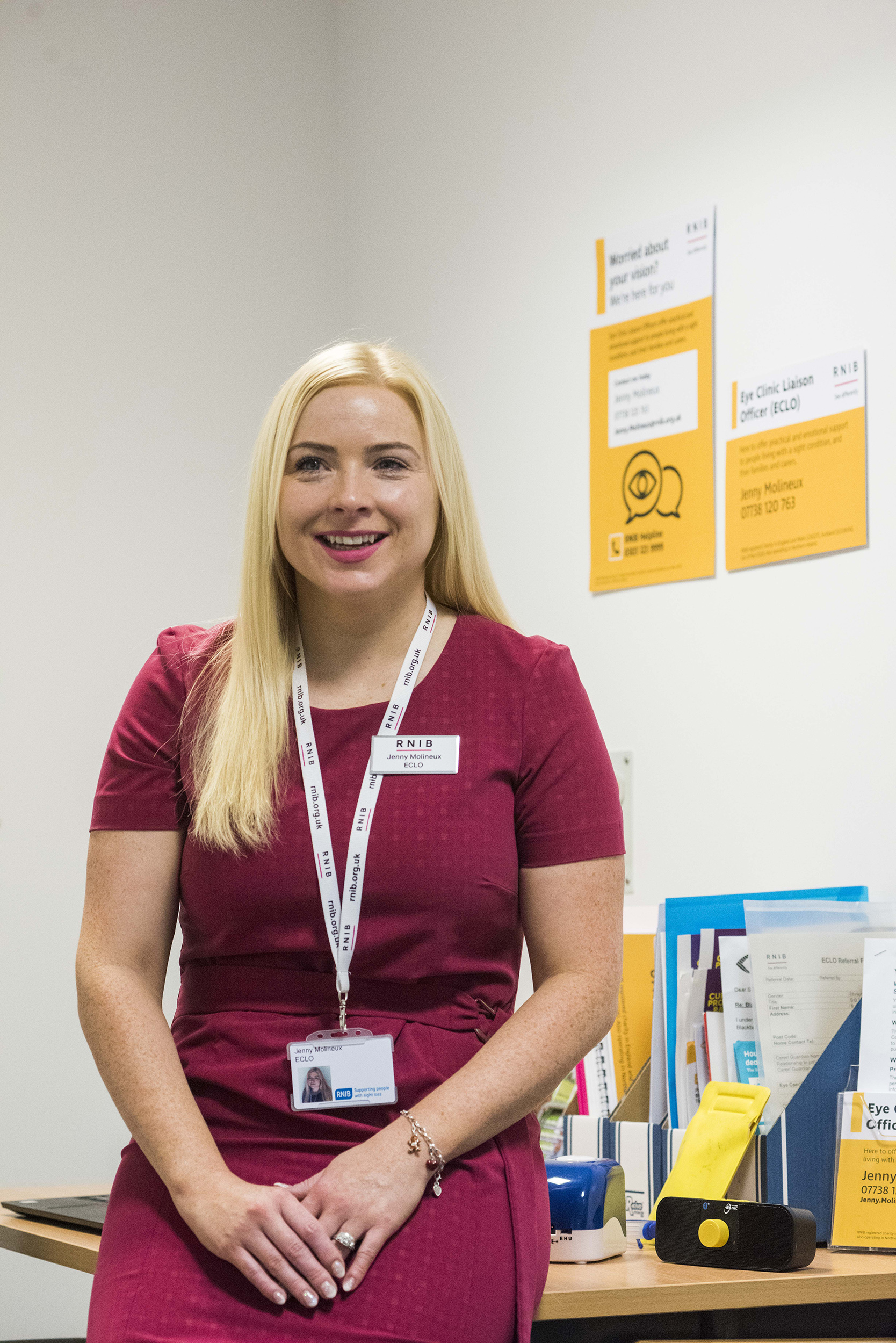
Jenny Molineux, an Eye Clinic Liaison Officer (ECLO) at Blackburn and Burnley hospitals, is backing a campaign by the Royal National Institute of Blind People (RNIB) to ensure support for patients losing their sight.
Jenny Molineux has an eye condition called Reverse Retinitis Pigmentosa and is registered blind. RNIB supported Jenny through her diagnosis, during which Jenny didn’t have access to an ECLO. Her personal experience prompted Jenny to become an ECLO as she knows the huge difference that emotional support can make when you are told you are losing your sight.
ECLOs work alongside health professionals in eye clinics to offer support and advice to blind and partially sighted people on a range of areas. This includes emotional support, independent living, returning to work and benefit entitlements.
RNIB believes that no one should have to face sight loss alone. ECLOs are an important part of RNIB’s Sight Loss Advice Service, which provides practical advice and emotional support over the phone, as well as face to face in eye clinics, for anyone affected by sight loss.
Current statistics (from January 2019) show that 43 per cent of the top 150 NHS Trusts in England have no trained ECLO in place. In hospitals where there are ECLOs, each one provides support to at least 600 patients, plus 200 relatives, each year.
Jenny said: “ECLOs provide such a vital role in breaking down barriers for people with sight loss. A huge barrier is fear. It’s a feeling I personally know well: fear of the unknown and panic about what the future holds for you after your diagnosis. By teaching people new skills and showing them a new way of looking at things, ECLOs empower people to turn their fear into a ‘can do’ attitude.”
Research shows that 1 in 4 people with sight loss leave hospital unsure what condition they have, and that only 17 per cent of people experiencing sight loss in the UK were offered any form of emotional support in relation to their deteriorating vision.
David Clarke, Director of Services at RNIB, said: “When you’ve been diagnosed with a sight condition or experience a sudden change in vision, having someone you can trust to turn to for support and advice can make a huge difference.
“ECLOs, as part of RNIB’s Sight Loss Advice Service, provide vital information, advice and guidance. It is so important that patients receive the support they need, when they need it.
Eye Clinic Matron Carrie Earnshaw, said: “Having an Eye Clinic Liaison Officer is the best way to support patients in our very busy eye clinics at Burnley and Blackburn hospitals. Being diagnosed with an eye condition is often difficult to come to terms with, and Jenny does a fantastic job in helping our patients at what can be an extremely confusing and uncertain time.”
In the UK, ophthalmology continues to have the second highest number of outpatient attendances of any speciality. In 2017/18, there were 8.5 million eye clinic appointments.
RNIB’s Sight Loss Advice Service gives practical and emotional support to anyone with an eye condition, as well as their family and carers. Our Sight Loss Advice Service is easy to use. You can either choose from a face-to-face appointment with one of our hospital-based ECLOs or speak to a sight loss adviser over the phone via our Helpline.
If you’d like to talk to a Sight Loss Adviser please call us on 0303 123 9999 or visit www.rnib.org.uk


